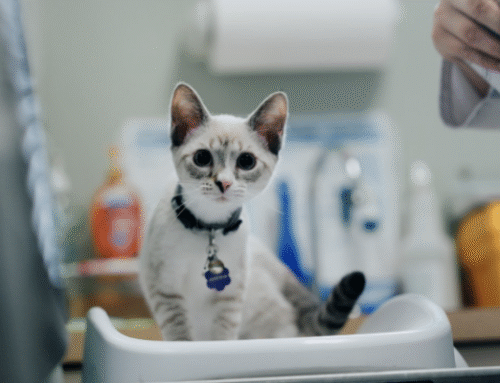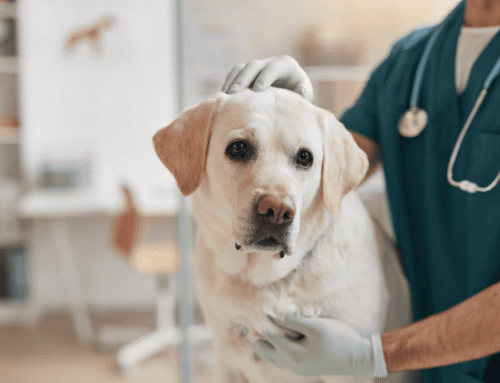Pet owners experience boundless joy and devoted companionship by sharing their lives with their four-legged friends. Yet, behind those endearing wagging tails and gentle purrs lurk potential health concerns, often linked to a pet’s breed ancestry. Understanding these breed-related health conditions is crucial to being proactive with your pet’s care and ensuring their well-being. Our Safe Harbor Animal Hospital team takes a closer look at some of the most common cat and dog breeds and unravels their genetic predispositions to certain ailments.
Health conditions affecting Persian cats
A luxurious coat and endearing flattened facial features are hallmarks of Persian cats, but they are also known for:
- Polycystic kidney disease (PKD) — Persian cats are prone to this hereditary condition, which is characterized by fluid-filled cyst formation in the kidneys that leads to renal failure.
- Brachycephalic obstructive airway syndrome (BOAS) — Their adorable flat faces predispose Persians to respiratory issues, including stenotic nares (narrow nostrils), elongated soft palates, and narrowed tracheas. These features can result in breathing difficulties.
Health conditions affecting Siamese cats
Vocal and affectionate, Siamese cats are a favorite among cat lovers. However, Siamese cats are prone to developing:
- Feline asthma — Siamese cats are susceptible to asthma, often triggered by environmental factors such as dust, pollen, or cigarette smoke. Feline asthma may appear as wheezing, coughing, and labored breathing.
- Amyloidosis — This genetic disorder is prevalent in Siamese cats and involves the abnormal deposition of amyloid proteins in organs like the liver, kidneys, and spleen, potentially leading to organ dysfunction.
Health conditions affecting Maine coon cats
One of the largest cat breeds, the awe-inspiring Maine coon cat is susceptible to:
- Hypertrophic cardiomyopathy (HCM) — Maine coons have a higher predisposition to HCM, a heart condition characterized by the thickening of the heart muscle, which can result in heart failure or sudden death.
- Hip dysplasia — Although hip dysplasia is more commonly associated with dogs, Maine coons can also suffer from this inherited condition, which causes abnormal hip joint development and can lead to lameness and arthritis.
Health conditions affecting Labrador and golden retrievers
Labrador and golden retrievers are family favorites; however, these popular breeds are predisposed to developing:
- Hip and elbow dysplasia — Retrievers are prone to hip and elbow dysplasia, a hereditary condition in which the joint doesn’t develop properly, resulting in pain, lameness, and arthritis.
- Obesity — Retrievers often have a hearty appetite and a tendency to gain weight easily, predisposing them to obesity-related health issues such as joint problems, skin and urinary problems, and heart disease.
- Cancer — Retrievers have a higher predisposition to various cancer types, including lymphoma, hemangiosarcoma, and mast cell tumors.
Health conditions affecting German shepherds
Loyal and determined, German shepherds are highly protective of their families, but they can suffer from serious health problems, including:
- Degenerative myelopathy (DM) — This neurological disease is common in German shepherds, causing progressive hind limb weakness and paralysis as a result of spinal cord degeneration.
- Exocrine pancreatic insufficiency (EPI) — German shepherds are prone to EPI, which can occur when the pancreas fails to produce enough digestive enzymes, leading to malnutrition and weight loss despite a hearty appetite.
Health conditions affecting bulldogs
French and English bulldogs are among some of the most beloved dog breeds, but their unique anatomy predisposes them to many health concerns, such as:
- Brachycephalic obstructive airway syndrome (B0AS) — Bulldogs suffer from BOAS because of their flat faces, leading to breathing difficulties, overheating, and exercise intolerance.
- Cherry eye — Bulldogs are predisposed to cherry eye, a condition in which the gland of the third eyelid prolapses, causing redness, irritation, ocular dryness, and potential vision problems if left untreated.
- Allergies — Bulldogs are prone to allergies and skin issues that can lead to chronic inflammation and infection. Triggered by pollen, mold, dust mites, fleas, or certain foods, these allergies can cause intense itching, hair loss, hot spots, ear infections, or gastrointestinal problems.
Health conditions affecting beagles
One of the most popular dog breeds in South Carolina, the beagle makes an all-around great family and hunting companion. However, they can develop:
- Epilepsy — Beagles are predisposed to epilepsy, a neurological disorder characterized by recurrent seizures. While the exact cause is often unknown, genetic factors play a significant role.
- Intervertebral disc disease (IVDD) — Beagles, with their long spines and active nature, are susceptible to IVDD, a condition in which the discs between the vertebrae degenerate or herniate, causing back pain, nerve damage, and paralysis.
- Hypothyroidism — Beagles are prone to hypothyroidism, a condition in which the thyroid gland doesn’t produce enough thyroid hormone, leading to weight gain, lethargy, hair loss, and skin problems.
The best medicine is preventive medicine, and, by understanding what health conditions your pet is at risk for, you can help keep your furry pal happy and healthy. Give our Safe Harbor Animal Hospital team a call or schedule an appointment online to discuss your pet’s genetic predisposition for certain medical problems and how you can prevent them.









Leave A Comment